International
At EPHEC, embracing internationalization is an integral part of our everyday operations. Through our longstanding dedication to expanding our network, we've cultivated over 200 partnerships with universities worldwide.

Our history
Missions & Values
Our vision
In a complex knowledge-based society in transition, everyone must be able to benefit from an innovative, multi-disciplinary learning environment at any time, where they can acquire a learning experience adapted to the evolution of their skills at every stage of their lives.
Our mission
EPHEC is an agile institution, capable of continually adapting to changes in its internal and external environment in order to achieve its mission. In this environment, each individual can acquire the training that corresponds to his or her life path, thanks to innovative, participative and caring teaching methods. EPHEC's mission is to be a committed learning community, where students, teachers and local and international players create innovative learning experiences to reveal everyone's potential, throughout their lives.
Our values as reference points
We cultivate five fundamental values that guide us in everything we undertake.
Imagination
We believe in the power of imagination. Throughout their studies, we encourage our students to explore their creative spirit, to push back the boundaries of conventional thinking. We give the opportunity to develop innovative ideas and bring them to life. Imagination can be used to drive your ambition.
Ambition
Our motto is to help student to succeed in whatever they do. Ambition is the driving force that will propels students towards their professional aspirations. We encourage them to aim high, to go beyond their limits and channel their determination into achieving their dreams. Ambition is the link between talents and goals, enabling students to realise their full potential in a spirit of continuous improvement.
Integrity
Integrity is the foundation of everything we do. We challenge students to act with honesty, make ethical decisions and be transparent in their interactions. Integrity is an essential standard that will prepare for a successful career and fulfilling experiences.
Caring
Caring is at the heart of our community. We encourage compassion, listening and peer support. Diversity is a richness that we celebrate. Caring teaches you to live in harmony with others, to promote inclusion in all its forms and to adhere to the essential values that unite our university college. We create a respectful, rewarding and supportive environment for the community.
Responsibility
Responsibility is a fundamental value for us. Making students to become aware of the impact of their actions on themselves and on the community. Becoming a committed citizen will enable them to make a positive contribution to society.
Strategic plan
Campuses
EPHEC is currently located on six different campuses, five in the heart of the European capital (Woluwe, Galileo, Schuman-Europe, Lambermont and Delta) and one in the centre of the student town of Louvain-la-Neuve. All our buildings fit harmoniously in urban centres, and are easily accessible by public transport.
All our buildings have been well-designed in order to encourage exchangs and interaction between the students and stimulate the learning process: Auditoriums of varying sizes, lecture theatres, libraries, computer rooms, learning centre labs, mezzanines, cafeteria...
Our exchange students following programmes in English are welcomed on our main campus of Woluwe. This campus is located 20 minutes by metro from the historical center of Brussels.
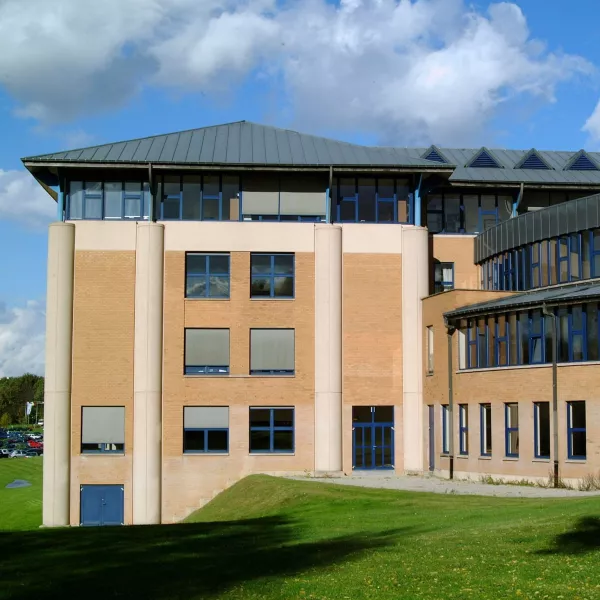
Degrees in Business & Law
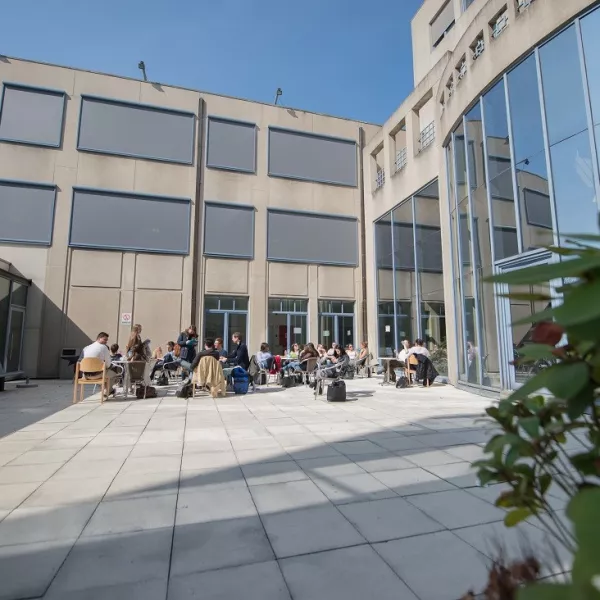
Degrees in Health and Education
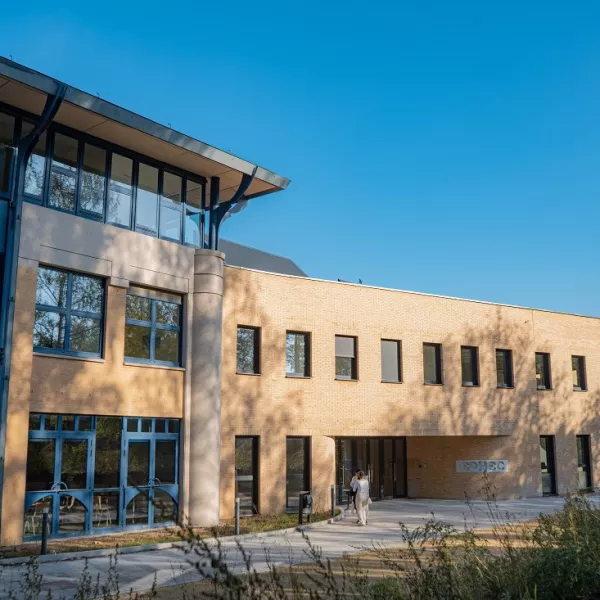
Degrees in Business & ICT
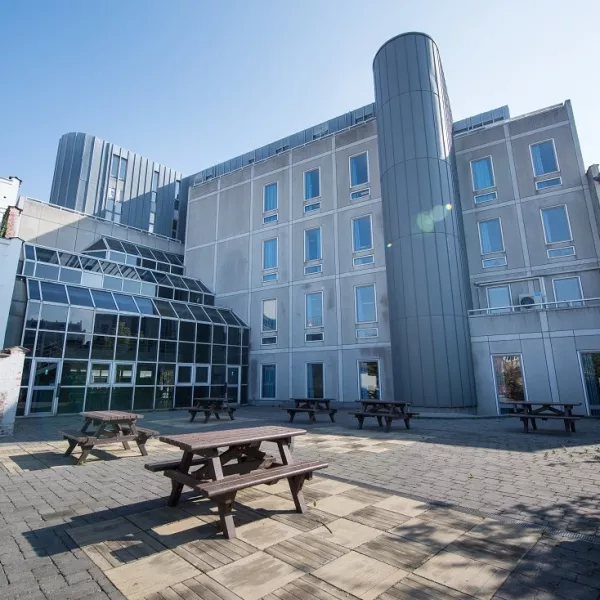
Degrees in Tourism & Leisure Management and Management and Languages
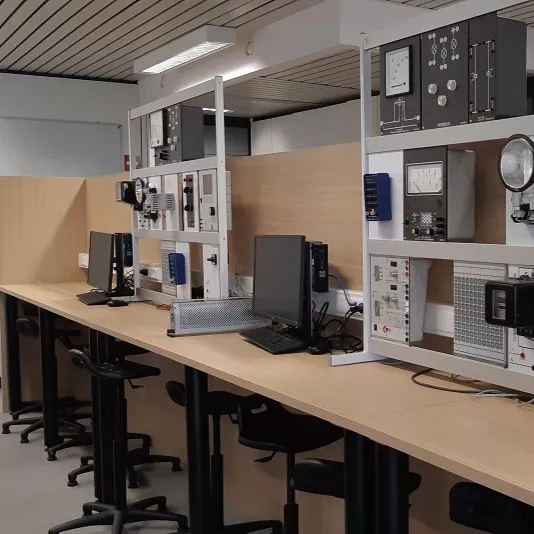
Quality Assurance
Policy
Quality at EPHEC is seen as the added value of the skills developed by graduate students over and above the skills they had when registering at EPHEC. It is also reflected in the student's contributions in terms of social responsibility. The internal quality management system is organised in line with EPHEC's strategic plan, through a procedure for defining, evaluating and implementing annual objectives. Quality thus flows directly from the strategic plan, and its results feed into it. Our quality management system aims to develop a robust quality culture. The desire for continuous improvement is omnipresent in the practices of our community, at all levels, reflecting a shared vision of the quality culture. The involvement of external stakeholders is frequently sought, motivated by a strong desire to meet the needs of the professional world while working to ensure the long-term employability of our students.
Implementation
The actions that the EPHEC puts in place to ensure quality include :
- Regular evaluations of teaching by students;
- Follow-up evaluations of graduates 1 and 5 years after graduation to gather data on their integration into the working firel and their opinion on the relevance of their studies to their professional lives;
- Advisory councils bringing together professionals from the sectors targeted by the various degrees;
- Biennial professional development interviews for members of faculty and staff;
- Regular satisfaction, motivation and commitment surveys among staff and students.

Stakeholders
"All players, all beneficiaries": this philosophy, which defines quality management at EPHEC, reflects the desire to see quality as an institutional concern in which all parties are involved. We make sure to
- contribute to the continuous improvement of the quality of teaching and learning;
- respond to requests from AEQES and provide methodological support;
- design and implement the methodology for evaluating autonomously the quality of the programmes;
- support the visibility and traceability of the continuous improvement actions carried out within EPHEC;
- provide methodological support and documentation for the executive board in establishing its vision, strategy and continuous improvement.
External evaluations
Institutional level
Institutional evaluation examines to what extent and in what way the quality management system and, more generally, the operation of the governance of a higher education institution are suited to its objectives and profile (fit for purpose).
In recent years, AEQES has introduced a gradual transformation of the external evaluation system to support the development of institutions' quality approaches by setting up an institutional evaluation process, in which EPHEC has been involved from the outset by taking part in the pilot phase. The aim of this pilot phase was to strengthen the institutions' ability to set up a robust internal quality management system, develop a 'quality culture' and increase their autonomy and accountability. EPHEC's quality assurance system is therefore being adapted to meet the specific requirements of autonomous programme evaluation.
Programme level
The quality of our training programmes is ensured by the quality policy put in place by the EPHEC, and the concrete and participative actions that flow from it.
From 2023, EPHEC has autonomy in terms of management and quality assessment for the ongoing assessments of our bachelor's degrees in Automation; Accounting ; E-Business; Electromechanics; Information Technology ; International Business; Law; Marketing; Information Technology.
Initial assessments will continue to be carried out by AEQES. Our commitment to this autonomy stems from a desire to recognise and ensure recognition of the deep-rootedness of the quality approach, which is perceptible through the wealth of practices developed and the reality of the dissemination of a culture of continuous improvement within the EPHEC, while at the same time creating an opportunity to further formalise our quality system.
Our pedagogy
Our pedagogical model : practice, professionalism and proximity
Our teaching approach is based on three fundamental pillars. It is practical, offering students concrete skills that are directly applicable in the professional world. It is professional, preparing them for a successful career by familiarising them with the realities of the field. Finally, our teaching approach is based on proximity, with our lecturers playing an essential role in guiding, inspiring and supporting our students throughout their learning journey, creating an environment conducive to academic excellence, personal fulfilment and self-confidence.
Teaching by experts
At EPHEC, we’re proud of our faculty team of committed experts, each with an undisputed expertise of their field and an ability to educate students in a practical, interactive and passionate way. They bring innovation and diversity to their courses, making them dynamic and conducive to learning. Whether through serious games, nursing case simulations (for EPHEC health), role-playing, hackathons, plays, international collaborations or other creative methods, our faculty members use a variety of scenarios to encourage student interaction, enabling them to acquire the skills expected by professional circles.
Our pedagical model is also
- open and transparent to promote internal and external collaboration;
- differentiated which takes into account the diversity of learning profiles and individual needs
- entrepreneurial to develop students' entrepreneurial spirit and prepare them to be agents of change and business development, whether their own or that of others.
Entrepreneurship
Start your own future
Entrepreneurship means more than starting one’s own business. It is a state of mind that combines the right mix of will, initiative, skills, knowledge, behaviour and responsibility.
EPHEC enables students to create and structure their own future thanks to the curriculum and the professional support.
Responsible actors
EPHEC aims to provide an education that empowers all students, who are then able to gauge their own entrepreneurial ability, their desire to do so, but also to put in place the tools ne-cessary for entrepreneurship.
Electives
In most degrees, the students have the possibility to choose elective courses in entrepreneurship in order to develop more specific skills enabling them to set up their own businesses.
EPHEC Entreprendre
More and more students are setting up their own business during their studies. Since entrepreneurship is part of EPHEC’s DNA, it was more than obvious to set up a unit – EPHEC ENTREPRENDRE - dedicated to the development of these business creation projects.
Our entrepreneurial students find professional support within this structure and are given a lot of support to help them increase their chances of success.
The EPHEC Entreprendre structure, which benefits from regional recognition and subsidies, is present on our different campuses in order to allow students to integrate directly the local ecosystem.
When projects are sufficiently mature, incubators allow, in perfect agreement with professional partners, to see the growth of business creation projects.
They did it !
Sustainability
Sustainable development is development that meets the needs of the present without compromising the ability of future generations to meet their own needs (Brundtland Report).
EPHEC is convinced that by integrating the values of corporate responsibility and sustainability in its teaching, research and governance, it will open doors for a more inclusive and sustainable tomorrow.
To this end, EPHEC is committed to the United Nations Global Sustainable Goals and all bachelor degrees include courses and practical cases encouraging students to reflect on and contribute to solutions for local and / or global problems.
Moreover, a dedicated committee (composed of students, teachers and staff members) was brought to life in 2020, as well as the position of ‘Sustainable Development Coordinator’ in our staff.
Finally, various projects have been integrated in our bachelor degrees.
- In the Bachelor in Accounting, students take part in a workshop on how to make a given company's model of a given company more circular using the collective intelligence tool offered by CIRCULAB
- The Makers Week on our campus of Louvain-la-Neuve is an opportunity for our Marketing, Information Technology and Electromechanics students to use their creativity and technical skills to help people with reduced mobility.
- The Bachelor's degree in Tourism and Leisure Management includes a course dedicated to sustainable tourism in which students address climate change and analyse the sustainability of a tourism offering.
- The Green IT seminar where our students learn about the impact of technology on our environment, with their integration project having to meet at least one of the UN's sustainable development goals.
- Global Sustainable Management Programme: a full semester taught in English (30 ECTS), welcoming students from Business, Finance and Law degrees, in which students will have a theoretical input enabling them to formulate recommendations to a European company that strives to become more sustainable.

Erasmus Policy
INTERNATIONALIZATION IS ONE OF THE PILLARS OF OUR STRATEGIC PLAN.
AXIS 1: INTEGRATION OF THE INTERNATIONAL DIMENSION INTO THE INSTITUTION’S STRATEGIC PLAN
The process of integrating an international, intercultural or global dimension into the aims, roles and organisation of the institution in order to develop international skills for all.
AREA 2: DEVELOPMENT OF INTERNATIONAL RESEARCH PROJECTS
As for every Higher Education Institution, research and more specifically applied research enables to develop highly targeted expertise while at the same time being able to tackle the complexity of new challenges and resolve them through interdisciplinarity.
AREA 3: DEVELOPING INTERNATIONAL ACADEMIC AND BUSINESS PARTNERSHIPS
To develop our network of academic and corporate partnerships in Europe and around the world, ensuring that we only enter into partnerships that transcend student exchanges and are based on research projects, knowledge exchanges, capacity building and the strengthening of global networks. In doing so, we build equal and reciprocal relationships in which we learn from each other, discuss opportunities and focus on a multidisciplinary approach.
AXIS 4: DEVELOPMENT OF INTERNATIONALIZATION AT HOME (I@H) PROGRAMMES
Internationalization at Home (I@H) activities are implemented enabling to speed up the acquisition of ICOMs (= international skills).
COIL activities enable students and faculty members to collaborate.
AXIS 5: STIMULATING THE MOBILITY OF ACADEMIC AND ADMINISTRATIVE STAFF
The development of our international strategy involves the mobility of academic and administrative staff trough
training programmes
exchange between members of the various institutions, thereby identifying best practice and optimising the processes of each;
teaching at partner institutions;
developing collaborative projects (academic, research, etc.).
AXIS 6: SETTING UP NORTH-SOUTH COOPERATION AND CAPACITY-BUILDING PROJECTS
In order to fulfil our role as a global citizen, we intend to set up developement cooperation projects and capacity-building projects to support institutions in their modernisation and internationalisation processes.
This strategy is being implemented around 2 guiding principles: sustainable mobility and inclusion.
SUSTAINABLE MOBILITY
-
Implementing and promoting environmentally-friendly practices, in particular by
-
making environmentally responsible choices as part of our international policy;
-
establishing a detailed plan for the sustainable transport of students and staff;
-
proposing and developing virtual alternatives to mobility.
INCLUSION
Offering a framework programme before, during and after an international experience, taking into account diversity, cultural characteristics and equal relations by
-
strengthening the capacity of staff (academic and administrative) with regard to international activities;
-
increasing internal and external visibility;
-
qualitative support for incoming and outgoing students with specific needs.
Our policy statement can be found here
IN PRACTICE
-
Over 200 partnerships spread out all over the world
-
Member of several European and international networks like EAIE, BUSINET, NAFSA, NIBS…
-
Granted an Erasmus charter under the new Erasmus programme 2021-2027
